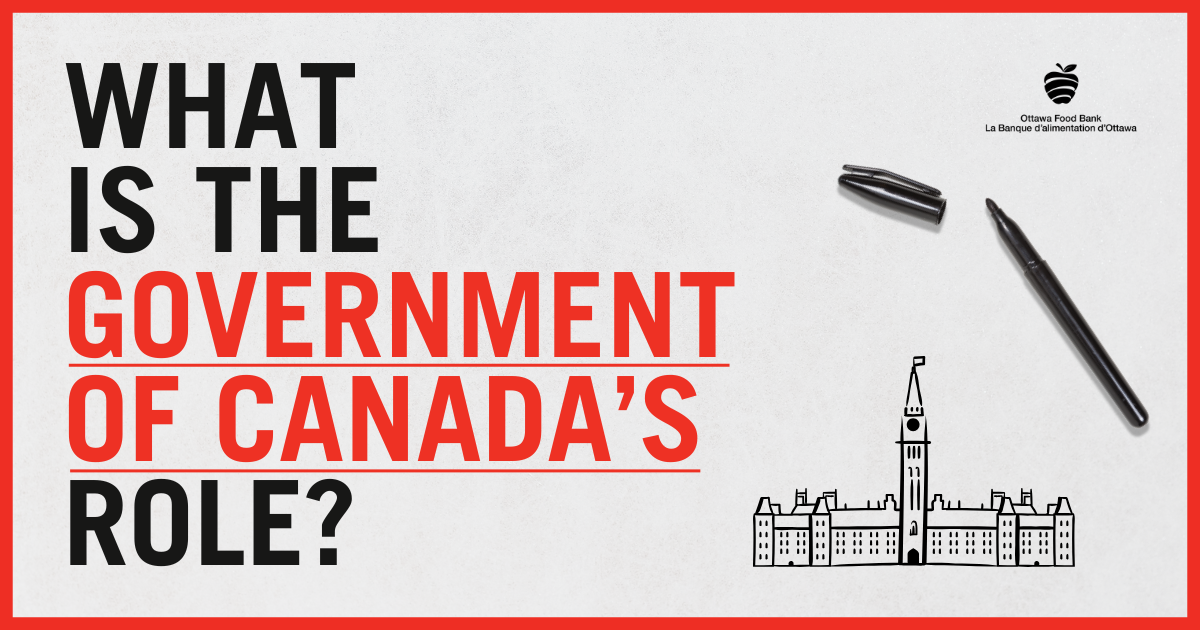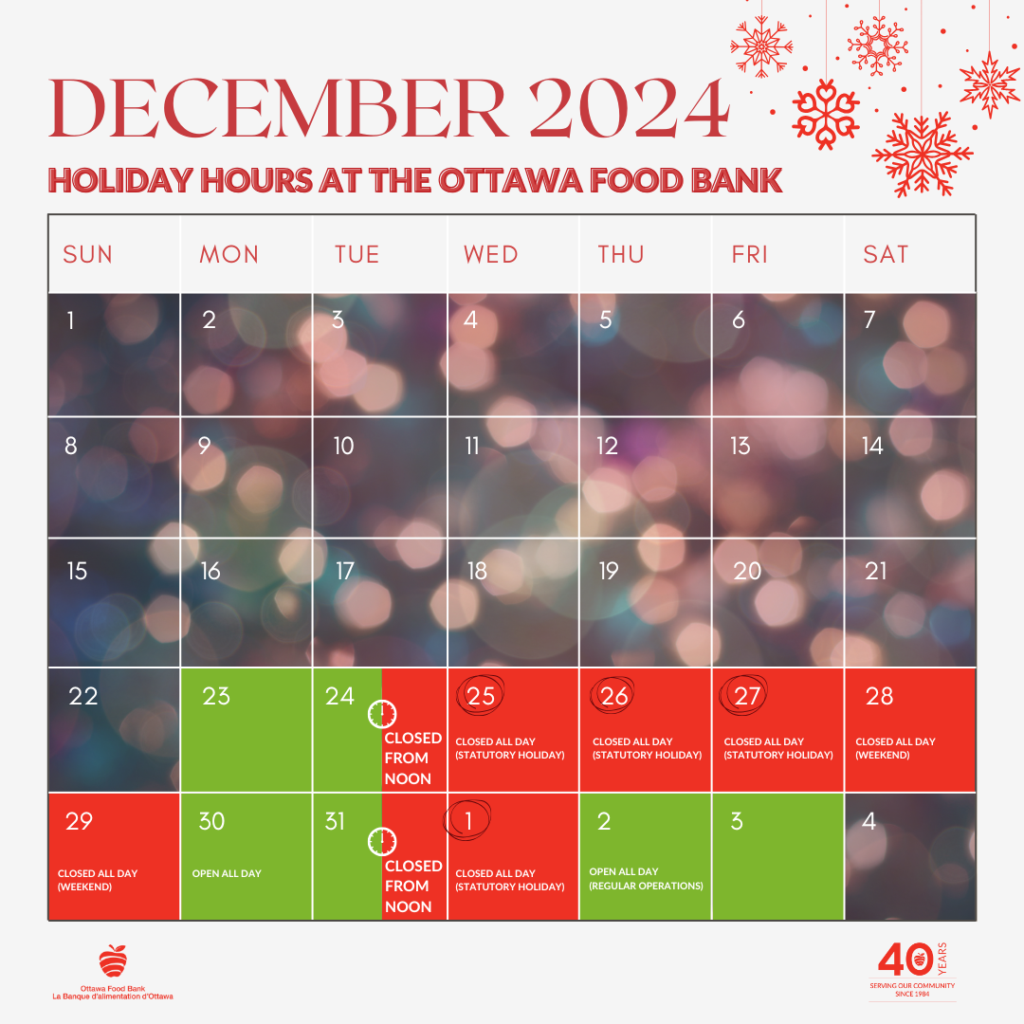With the 2025 Federal Election happening on April 28, it’s more important than ever to understand how federal policies shape everyday life—especially when it comes to food security. While many election conversations have focused on healthcare, housing, and trade, we know that federal decisions directly influence whether Canadians can afford to put food on the table.
Ottawa is one of many cities across Canada experiencing a food insecurity crisis, with 1 in 4 households reporting food insecurity across our city. Our Capital City is not the only one experiencing food insecurity, with Toronto, Mississauga, Kingston, and many others declaring emergencies these past few months.
We need our incoming government to prioritize policies that will help us cut food insecurity by 50% by 2030, and end it entirely by 2050.
So, what is the federal government’s role in food insecurity?
Take a look below at how different areas of the federal government impact food insecurity in Canada.
Federal policies on immigration, foreign relations, defence, and trade all play a role in food security. Immigration policies affect the availability of resources for new families, influencing their ability to access support systems. Trade agreements determine the cost of imported food, which directly impacts grocery prices. When tariffs or supply chain disruptions occur, low-income families feel the effects first, often struggling to afford healthy, nutritious meals.
Public institutions such as Canada Post, the Canadian Broadcasting Corporation (CBC), the Royal Canadian Mounted Police (RCMP), and the Supreme Court might not seem directly connected to food security, but they serve as critical infrastructure for accessing government programs. If these services are underfunded or inefficient, vulnerable Canadians may struggle to receive benefits, financial aid, or vital information about food assistance programs. Reliable public services ensure that support reaches those who need it most.
Programs like Employment Insurance, the Canada Child Benefit, Old Age Security, Disability Benefits, and the Canada Pension Plan provide a financial safety net. When these benefits fail to keep pace with the rising cost of living, people are forced to make impossible choices between rent, healthcare, and food. Cuts or restrictions to these programs push more Canadians toward food banks, increasing food insecurity nationwide.
The federal government shares responsibility with provinces and municipalities in funding essential services such as housing, healthcare, and policing. Affordable housing is a cornerstone of food security—when families spend too much on rent, less money is available for food. Similarly, healthcare costs can strain household budgets, making it harder to afford basic necessities. Federal investments in these areas directly impact poverty rates and the number of Canadians relying on food banks.
Learn more about food insecurity in the nation’s capital by reading the Ottawa Hunger Report.
This election, ask: How will federal leaders address poverty, affordability, and food security?
Engage with your elected officials, ask them critical questions on behalf of our network, or head to the polls and vote. Learn how you can take action. Read our guide to engaging your elected official and ask them questions created by our network of member agencies.
For more on the 2025 Federal Election, visit Capital Hunger, National Crisis.





Recent Comments